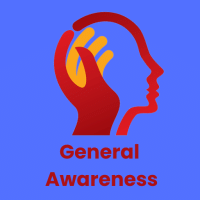CDS Exam > CDS Questions > Some part of the sentences have errors and so...
Start Learning for Free
Some part of the sentences have errors and some are correct. Find out which part of a sentence has an error and mark the answer accordingly.
- a)It took him
- b)time to realize
- c)that he offended the stranger.
- d)No error
Correct answer is option 'C'. Can you explain this answer?
Verified Answer
Some part of the sentences have errors and some are correct. Find out ...
When two actions take place in the past then the first action will be in the past perfect tense and the latter will be in the simple past tense. So we have to put ‘had’ before offended (It took him/time to realize/that he had offended the stranger/ No error).
Hence, the correct answer is ‘C’ here.
Hence, the correct answer is ‘C’ here.
Most Upvoted Answer
Some part of the sentences have errors and some are correct. Find out ...
When two actions take place in the past then the first action will be in the past perfect tense and the latter will be in the simple past tense. So we have to put ‘had’ before offended (It took him/time to realize/that he had offended the stranger/ No error).
Hence, the correct answer is ‘C’ here.
Hence, the correct answer is ‘C’ here.
Free Test
FREE
| Start Free Test |
Community Answer
Some part of the sentences have errors and some are correct. Find out ...
Understanding the Error in the Sentence
The sentence in question is: "It took him time to realize that he offended the stranger."
Identifying the Error
- The error lies in part C of the sentence, specifically in the phrase "that he offended the stranger."
Explanation of the Error
- The verb "offended" is in the past tense, which suggests that the action has already occurred. However, the context implies that he has only just realized the offense, indicating a need for a different tense.
- To correct the sentence, we could change "offended" to "offends" to reflect a more immediate or ongoing action. This would provide clarity that the realization pertains to a more current feeling rather than a past action.
Revised Sentence
- A corrected version could read: "It took him time to realize that he offends the stranger," which indicates he is currently offending the stranger, thereby making the sentence coherent in its context.
Conclusion
- In summary, the error in part C is the use of the past tense "offended" instead of the present tense "offends," which better aligns with the context of the realization. Spotting such nuances is essential for clear and effective communication.
The sentence in question is: "It took him time to realize that he offended the stranger."
Identifying the Error
- The error lies in part C of the sentence, specifically in the phrase "that he offended the stranger."
Explanation of the Error
- The verb "offended" is in the past tense, which suggests that the action has already occurred. However, the context implies that he has only just realized the offense, indicating a need for a different tense.
- To correct the sentence, we could change "offended" to "offends" to reflect a more immediate or ongoing action. This would provide clarity that the realization pertains to a more current feeling rather than a past action.
Revised Sentence
- A corrected version could read: "It took him time to realize that he offends the stranger," which indicates he is currently offending the stranger, thereby making the sentence coherent in its context.
Conclusion
- In summary, the error in part C is the use of the past tense "offended" instead of the present tense "offends," which better aligns with the context of the realization. Spotting such nuances is essential for clear and effective communication.

|
Explore Courses for CDS exam
|

|
Similar CDS Doubts
Question Description
Some part of the sentences have errors and some are correct. Find out which part of a sentence has an error and mark the answer accordingly.a)It took himb)time to realizec)that he offended the stranger.d)No errorCorrect answer is option 'C'. Can you explain this answer? for CDS 2025 is part of CDS preparation. The Question and answers have been prepared according to the CDS exam syllabus. Information about Some part of the sentences have errors and some are correct. Find out which part of a sentence has an error and mark the answer accordingly.a)It took himb)time to realizec)that he offended the stranger.d)No errorCorrect answer is option 'C'. Can you explain this answer? covers all topics & solutions for CDS 2025 Exam. Find important definitions, questions, meanings, examples, exercises and tests below for Some part of the sentences have errors and some are correct. Find out which part of a sentence has an error and mark the answer accordingly.a)It took himb)time to realizec)that he offended the stranger.d)No errorCorrect answer is option 'C'. Can you explain this answer?.
Some part of the sentences have errors and some are correct. Find out which part of a sentence has an error and mark the answer accordingly.a)It took himb)time to realizec)that he offended the stranger.d)No errorCorrect answer is option 'C'. Can you explain this answer? for CDS 2025 is part of CDS preparation. The Question and answers have been prepared according to the CDS exam syllabus. Information about Some part of the sentences have errors and some are correct. Find out which part of a sentence has an error and mark the answer accordingly.a)It took himb)time to realizec)that he offended the stranger.d)No errorCorrect answer is option 'C'. Can you explain this answer? covers all topics & solutions for CDS 2025 Exam. Find important definitions, questions, meanings, examples, exercises and tests below for Some part of the sentences have errors and some are correct. Find out which part of a sentence has an error and mark the answer accordingly.a)It took himb)time to realizec)that he offended the stranger.d)No errorCorrect answer is option 'C'. Can you explain this answer?.
Solutions for Some part of the sentences have errors and some are correct. Find out which part of a sentence has an error and mark the answer accordingly.a)It took himb)time to realizec)that he offended the stranger.d)No errorCorrect answer is option 'C'. Can you explain this answer? in English & in Hindi are available as part of our courses for CDS.
Download more important topics, notes, lectures and mock test series for CDS Exam by signing up for free.
Here you can find the meaning of Some part of the sentences have errors and some are correct. Find out which part of a sentence has an error and mark the answer accordingly.a)It took himb)time to realizec)that he offended the stranger.d)No errorCorrect answer is option 'C'. Can you explain this answer? defined & explained in the simplest way possible. Besides giving the explanation of
Some part of the sentences have errors and some are correct. Find out which part of a sentence has an error and mark the answer accordingly.a)It took himb)time to realizec)that he offended the stranger.d)No errorCorrect answer is option 'C'. Can you explain this answer?, a detailed solution for Some part of the sentences have errors and some are correct. Find out which part of a sentence has an error and mark the answer accordingly.a)It took himb)time to realizec)that he offended the stranger.d)No errorCorrect answer is option 'C'. Can you explain this answer? has been provided alongside types of Some part of the sentences have errors and some are correct. Find out which part of a sentence has an error and mark the answer accordingly.a)It took himb)time to realizec)that he offended the stranger.d)No errorCorrect answer is option 'C'. Can you explain this answer? theory, EduRev gives you an
ample number of questions to practice Some part of the sentences have errors and some are correct. Find out which part of a sentence has an error and mark the answer accordingly.a)It took himb)time to realizec)that he offended the stranger.d)No errorCorrect answer is option 'C'. Can you explain this answer? tests, examples and also practice CDS tests.

|
Explore Courses for CDS exam
|

|
Signup to solve all Doubts
Signup to see your scores go up within 7 days! Learn & Practice with 1000+ FREE Notes, Videos & Tests.
























